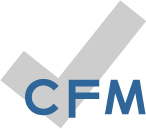
|
CHECK FUND MANAGER
|
|
|
CREDENTIALING & DUE DILIGENCE One type of red flag we, at Check Fund Manager, often come across in our due diligence investigations is the misrepresentation of credentials, the scale of which varies from minor distortions to gross omissions to outright fabrications. From a due diligence perspective, all falsifications are significant and should be addressed as part of the broader evaluation of an individual and the risk posed to an investment. WHAT TO VERIFY
|
|
Education
It is also more common for an individual to misrepresent a major or field of study than an actual degree. A real example of this is a manager who claimed to have majored in International Finance, but our investigation revealed that his degree was in French. Another problematic area is executive education programs. Often individuals claim to have a graduate degree or advanced studies from a university such as Harvard, when, in actuality, they attended an executive education program that awards a certificate. This is more common in international investigations. |
Licenses & Designations
Make sure to check if there are any disciplinary actions associated with a license. It is not enough to confirm the license alone, as several boards require additional inquiries regarding disciplinary history. If the individual went to law school, look for any current or former bar registrations. Similarly, anyone with a major in accounting should be examined for CPA licenses in the states where the person resided. Again, ensure that there are no disciplinary actions attached to these records. One of the most common issues that arises with license checks is expired credentials. An individual is not allowed to continue to use a CFA designation or CPA license that is expired. |
Employment
Establish a professional timeline for an individual. It is common to see dates of prior employment extended or altered to cover gaps in a work history or to hide a past employer involved in litigation or scandal. 
|
|
Credentialing misrepresentations happen more often than one might expect. Arm yourself against such red flags by knowing what to look for, verifying all reported achievements and professional experience, and questioning any disinformation that arises. To learn more about Check Fund Manager's due diligence background investigation services,
|
|
|
+1 860-666-9595 888-523-4483 |
|
|